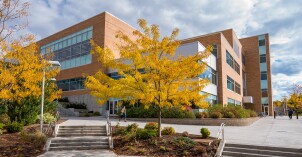Providing Reasonable Accommodations

When creating accommodations for students with disabilities, remember that disability law states that accommodations must be within reason, which means the accommodations must:
- Not lower standards of the course
- Not create an unfair advantage
- Not alter a fundamental component of the curriculum
If you feel that a student is asking for an accommodation that is either lowering the standards of the course, creating an unfair advantage or altering a fundamental component of the curriculum, the accommodation does not have to be made. For specific questions, please contact the Accessibility Services Office.
Common Accommodations
Possible questions to ask students with suspected disabilities:
“I see you’re struggling with the reading in my class, could you please come to my office so we could talk about what I can do to help you?”
"I have noticed that you do not finish the I-Learn quizzes in the allowed time, is there anything I can help you with?"
”I see that there are some barriers to your learning. What is it that is hard for you?”
Often, students will open up about learning disabilities or current life struggles. From there, you can assess possible accommodation options.

Possible follow up questions:
“What accommodations could help you to better understand this course material?”
“Do you feel like our arrangement is helping you learn?”
“How are you feeling about the class since the last time we met?”
Only in extreme situations should mentors consider asking students if they have ever been tested for learning disabilities. Because this is an extremely sensitive question to ask, prayerfully consider how to approach these situations. If a student is diagnosed with a disability, faculty, and employees will have more freedom to make accommodations, which can help them overcome learning obstacles.
Grading Students with Disabilities
If you are having trouble deciding how to grade students with disabilities, download the Grading Students with Disabilities document. For any other questions, contact the Accessibility Services Office directly.
Medical Challenges
Temporary disabilities and temporary absences (broken bones, illnesses, surgeries, etc.) are handled through the Dean of Student’s Office.